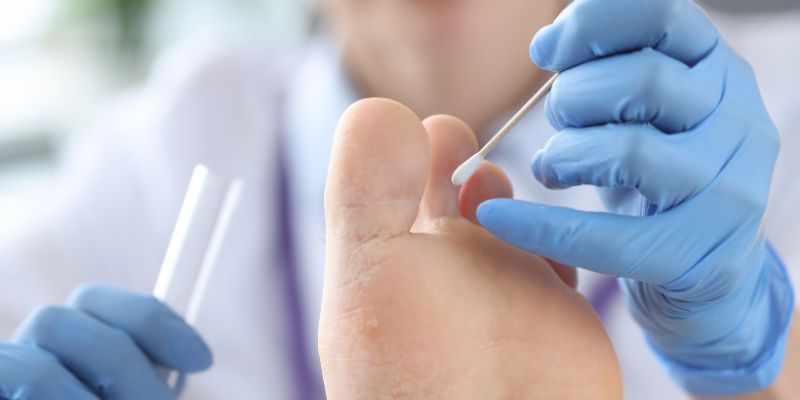Signs and Symptoms of Biotinidase Deficiency Explained
Indeed, biotinidase deficiency forms one of those genetic disorders that rarely interrupt bodily functions in the processing and recycling of biotin. Biotin may prove critical because it helps in energy metabolism from fats, protein, and carbohydrates, and improper or poor dietary intake may give rise to complications. Though left untreated, they may be fatal. Biotin, more commonly filtered through the nomenclature of vitamin B7, is highly crucial for metabolic balance: a lack thereof would upset various systems.
Although rare, biotinidase deficiency must understand why it presents its early signs to treat and manage it permanently.

Early Warning Signs of Biotinidase Deficiency
The classic symptoms and signs of biotinidase deficiency usually emerge within the first weeks or months after birth. Very rarely, one or two cases out of many are symptomatic, and they are only occasionally detected later.
Seizures and hypotonia may occur in imbalanced forms during infancy, along with some developmental delay. The seizures may present as starry spells or movements of one or more limbs and are usually struck early and sometimes by an equally low-toned child, known as hypotonic, which occurs within the first few months and may later lead to feeding problems and delayed motor milestones.
The most common findings are skin problems: a red, scaly rash may also be described as eczema, or it may be hair loss, usually alopecia, although this is not obligatory. With time, much more severe untreated conditions may develop, for example, vision and hearing impairments.
Causes of Biotinidase Deficiency
Mutations in the BTD gene that code for the enzyme biotinidase cause biotinidase deficiency. This enzyme aids in the recycling of biotin bound to dietary proteins; thus, without an active enzyme, the body cannot effectively utilize biotin, leading to deficiency even when sufficient biotin comes from the diet.
This condition's inheritance is autosomal recessive. That is, the child needs to inherit two defective copies of the BTD gene—one from each parent- to become diseased. Parents carriers with only one copy of the faulty gene will not be affected but can pass it on to their offspring.
If both parents are carriers, there is a 25% chance the child will develop the condition, a 50% chance the child will be a carrier and a 25% chance the child will not have the gene mutation.
Signs and Symptoms of Biotinidase Deficiency in Infants and Adults
Infants with profound biotinidase deficiency often exhibit symptoms within their first few months. Common signs include:
- Seizures and flickering eye movements.
- Poor coordination or ataxia.
- Muscle weakness and lethargy.
In severe cases, untreated infants can experience breathing difficulties, organ enlargement (hepatomegaly or splenomegaly), and even coma. Vision and hearing loss are also potential complications.
For some individuals, symptoms may not appear until later in life. This "late-onset" biotinidase deficiency can present with milder but impactful symptoms, such as intermittent muscle weakness, vision problems, or hearing loss. Some individuals remain asymptomatic despite carrying the genetic mutation.
How is Biotinidase Deficiency Diagnosed?
Early detection is critical to prevent the severe consequences of untreated biotinidase deficiency. This condition is identified in many countries during newborn screening programs, where a simple heel-prick blood test measures enzyme activity.
For families with a history of the condition, genetic testing of the BTD gene can confirm whether a child is at risk. This method is beneficial in regions where newborn screening for biotinidase deficiency is not mandatory.
Treatment for Biotinidase Deficiency
The treatment for biotinidase deficiency is straightforward and highly effective. Daily supplementation with biotin, usually 5–10 mg, can prevent symptoms and allow individuals to live healthy lives.
Biotin supplementation restores normal enzyme function, enabling the body to metabolize nutrients effectively. Early and consistent treatment can reverse symptoms in many cases, including developmental delays and seizures. However, if nerve damage has already occurred, hearing or vision impairments may require additional interventions, such as hearing aids.
Treatment must be lifelong to maintain normal metabolic function. Skipping biotin supplementation can lead to a return of symptoms, even in previously stable adults.

Why Early Treatment Matters
Delays recognizing the signs and symptoms of biotinidase deficiency can lead to irreversible damage, including cognitive delays and permanent sensory impairments. For infants, untreated deficiency increases the risk of severe complications, such as seizures, organ failure, and death.
Early intervention through newborn screening and immediate biotin supplementation has proven to prevent these outcomes. Individuals diagnosed early often achieve normal development and avoid the long-term complications associated with this disorder.
Understanding the Genetic Link to Biotinidase Deficiency
The mutations in the BTD gene cause biotinidase deficiency by reducing or completely halting the enzyme's function. More than 20 distinct mutations have been identified, varying impacts on enzyme activity.
Profound Deficiency:
Less than 10% of regular enzyme activity.
Partial Deficiency:
Enzyme activity ranges between 10% and 30%.
The severity of symptoms correlates with the level of enzyme activity. While individuals with partial deficiency may have milder symptoms, they still benefit significantly from biotin supplementation.
Living with Biotinidase Deficiency
Although biotinidase deficiency is lifelong, proper management can ensure a standard quality of life. Regular follow-ups with healthcare providers and adherence to biotin supplementation are key.
Understanding the inheritance pattern helps parents assess the likelihood of passing the condition to their children.
Conclusion
Recognize that biotinidase deficiency, though rare, is a serious condition that calls for swift identification and treatment. The classic symptoms and signs of biotinidase deficiency, especially in infancy, should not be neglected since an early diagnosis will prevent drastic complications. Knowing the genetic causes of biotinidase deficiency emphasizes the significance of gene screening and newborn testing. With lifelong biotin supplementation, these individuals can expect to lead daily, fulfilling lives. Education, awareness, and timely diagnosis are critical in effectively managing this metabolic condition.












